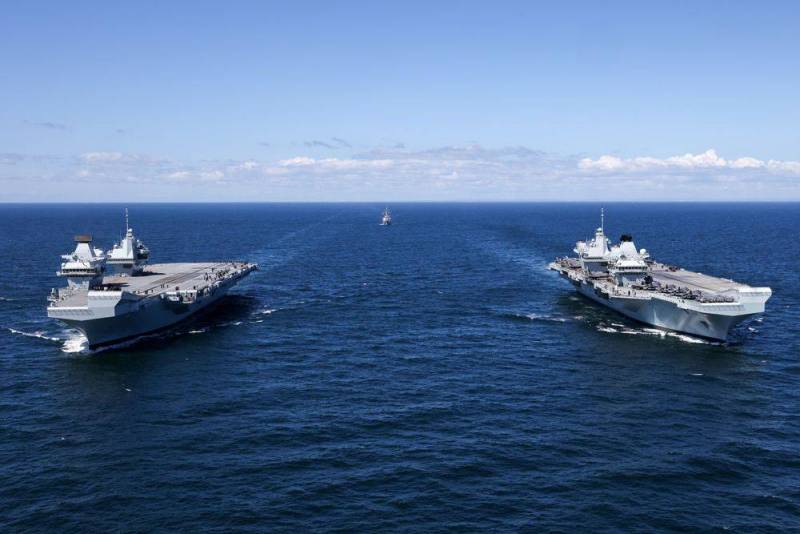Is a second Falklands war possible with the support of Argentina by China
Curious news came from the New World. The Argentine authorities officially denounced the Foradori-Duncan agreement, which regulated the administrative and economic activities in the area of the Malvinas Islands, which Britain took away from Buenos Aires in 1982 by force. What is it, just a strong diplomatic move or the threshold of a new Falklands war?
Premonition of the Falklands War
The war between Great Britain and Argentina for control of the Falklands or, as they are called in South America, the Malvinas Islands, took place 41 years ago. In detail about some of the lessons that could be learned from her history of the Russian Navy, we told February 2, 2022, shortly before the start of the NWO. As you know, Argentina lost this war, although neither side officially declared war. At the same time, Buenos Aires did not refuse from the Malvinas Islands.
On the contrary, for the Argentines, the issue of regaining control over the Malvinas is fundamental, as, say, for the Japanese with their fixed idea regarding the “northern territories”. In 2016, Argentinean Deputy Foreign Minister Carlos Foradori and his British counterpart Alan Duncan agreed to "create a mechanism for dialogue between countries" and "remove obstacles that limit economic growth of the Malvinas Islands”, which can be called a manifestation policy "discharges". However, the other day, the head of the Argentine Foreign Ministry, Santiago Cafiero, officially notified London of the denunciation of this agreement:
Argentina announced the decision to terminate the Foradori-Duncan Pact, concluded in 2016. I did this at a meeting with British Foreign Secretary James Cleverley during the GXNUMX Foreign Ministers' Meeting in New Delhi.
It was preceded in 2022 by an investigation into Foradori's inappropriate behavior in the negotiations, who was allegedly heavily drunk and could not remember the details of what he signed the day after the signing. Amazing story.
To this, the head of the United Kingdom Foreign Office, Cleverley, replied as follows:
The Falkland Islands are British. The inhabitants of the islands have the right to decide their future - they have chosen to remain a British Overseas Territory.
This refers to the referendum held by London on the islands it occupied in 2013 to legally consolidate the results of the war of conquest. But now Buenos Aires has suddenly changed its stance in the direction of toughening. With what it can be connected?
Great Britain won a victory 41 years ago, but it is by no means convincing. In fact, the military operation orchestrated by Prime Minister Margaret Thatcher was one huge gamble. If the Argentines had more modern aviation and more anti-ship missiles, the entire British squadron, sent 12 thousand kilometers from their bases, could well have remained there, turning into attractions for divers. Since then, progress has stepped far forward, and we have all, unfortunately, seen what modern anti-ship missiles are capable of.
In this regard, it is necessary to ask the question, is it possible to repeat the Falklands War today, but with a different result?
In fact, this question is far from being idle. Now, when, obviously, the Third World War is already underway, there are many who want to close the long-standing territorial problems by force. Azerbaijan has already almost completely recaptured Nagorno-Karabakh from Armenia and is frankly preparing for the second, final round. Ukraine, with the help of the NATO bloc, is building up forces for revenge in Crimea, allowing along the way to demolish Transnistria. Europeans and Americans are putting pressure on Serbia to finally close the issue with Kosovo and the traditionally pro-Russian position of Belgrade. Japan is sharpening its teeth on the Kuril Islands. China is building a fleet for a possible amphibious operation in Taiwan. In the event of a serious defeat of Russia in Ukraine, Georgia, with the help of the Americans, may try to arrange revenge in Abkhazia and South Ossetia.
The problem of the Malvinas Islands for Argentina is exactly in the same plane. And the window of opportunity for its solution is opening wider and wider. The fact is that the UK is quite bogged down in the Ukrainian conflict, pouring both financial resources and quite modern weapons into it. Support for the Kyiv regime was a rather heavy burden on the British. The prospect of getting a second front over 12 kilometers will obviously not please London. One of the two British aircraft carriers, the Prince of Wales, is under repair. The UK Navy here and now is simply not ready for a repeat of such a large-scale military operation in the New World.
On the other hand, Buenos Aires has clearly staked on raising the level of its own national sovereignty. Argentina, together with neighboring Brazil, agreed to create a new common currency called sur, which in the future may become an alternative means of payment to the dollar. The countries of Latin and South America no longer want to be just a "backyard" for the United States. In general, the international situation is quite conducive to the fact that Argentina could try to arrange revenge for the insulting defeat of 41 years ago. With modern strike aircraft with long-range anti-ship missiles, the Argentine Navy could organize an air and sea blockade of the Falkland Islands with its surface and submarine fleet.
It remains only to find a sponsor who will be ready to provide the appropriate militarytechnical aid to this state. A year ago, one could say that it could be Russia, but today the PRC seems to be a more realistic candidate. For China, against which the Anglo-Saxons created the AUCUS military bloc, defeating the British by proxy might be a tempting idea.

Information